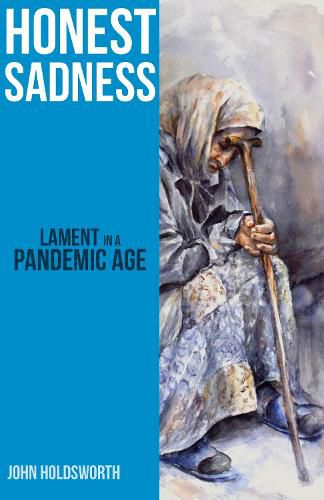Readings Newsletter
Become a Readings Member to make your shopping experience even easier.
Sign in or sign up for free!
You’re not far away from qualifying for FREE standard shipping within Australia
You’ve qualified for FREE standard shipping within Australia
The cart is loading…






This title is printed to order. This book may have been self-published. If so, we cannot guarantee the quality of the content. In the main most books will have gone through the editing process however some may not. We therefore suggest that you be aware of this before ordering this book. If in doubt check either the author or publisher’s details as we are unable to accept any returns unless they are faulty. Please contact us if you have any questions.
In the present century, from the twin towers to the COVID-19 pandemic, there is much to disturb our securities and beliefs. The Old Testament presents us with similar situations of bewildered suffering, and one persistent theme of response is that of lament.
Honest Sadness examines lament as a means of articulating faithful incomprehension, and as a resource for what have been called communities of honest sadness. It traces the development of lament through the Old Testament and questions why it is apparently absent from both the New Testament and much of the life of the Church today, at just the point where many think it could be most useful.
Those who work with disabled people and with abuse victims, for example, are realizing the importance of lament. Liturgists are wondering how it can be reintroduced into worship, and whether it is legitimate to do so. Biblical scholars are looking afresh at how and why lament died out.
The book brings these various questions and insights together, suggesting that perhaps the early Church got it wrong about lament, and attempting new definitions for communities of honest sadness. It is written not only from the perspective of lived experience in the wider world in such places as Beirut and Bosnia, but also from the intensely painful personal experience of the author’s own bereavement. It will be of interest to all who are reflecting theologically seriously on our times, or helping others to do so.
$9.00 standard shipping within Australia
FREE standard shipping within Australia for orders over $100.00
Express & International shipping calculated at checkout
This title is printed to order. This book may have been self-published. If so, we cannot guarantee the quality of the content. In the main most books will have gone through the editing process however some may not. We therefore suggest that you be aware of this before ordering this book. If in doubt check either the author or publisher’s details as we are unable to accept any returns unless they are faulty. Please contact us if you have any questions.
In the present century, from the twin towers to the COVID-19 pandemic, there is much to disturb our securities and beliefs. The Old Testament presents us with similar situations of bewildered suffering, and one persistent theme of response is that of lament.
Honest Sadness examines lament as a means of articulating faithful incomprehension, and as a resource for what have been called communities of honest sadness. It traces the development of lament through the Old Testament and questions why it is apparently absent from both the New Testament and much of the life of the Church today, at just the point where many think it could be most useful.
Those who work with disabled people and with abuse victims, for example, are realizing the importance of lament. Liturgists are wondering how it can be reintroduced into worship, and whether it is legitimate to do so. Biblical scholars are looking afresh at how and why lament died out.
The book brings these various questions and insights together, suggesting that perhaps the early Church got it wrong about lament, and attempting new definitions for communities of honest sadness. It is written not only from the perspective of lived experience in the wider world in such places as Beirut and Bosnia, but also from the intensely painful personal experience of the author’s own bereavement. It will be of interest to all who are reflecting theologically seriously on our times, or helping others to do so.